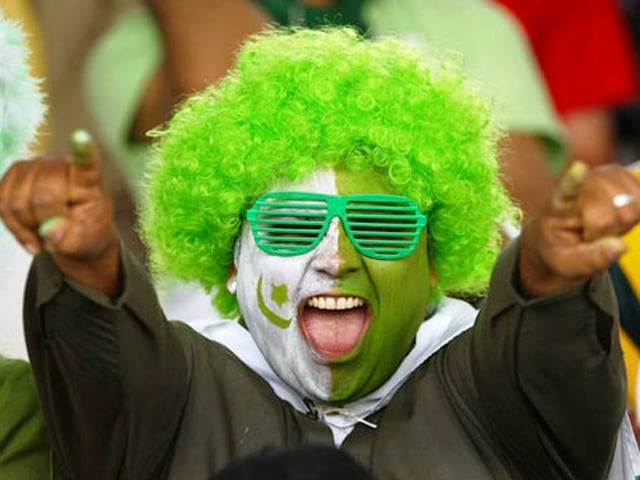Just to be sure, I click on the link, and read the News of the World story. And I say to myself, 'Bugger off, cricket! You've lost me again.'
My visceral reaction was one of disgust. News of the World is a paper I tend to rubbish for its shady reputation, but this story was too fact-driven, the proofs within too clear-cut, to be ignored.
So, I am disgusted – but at what, or whom? At these fixers, who roam the world, corrupting whom they may, never mind the cost to the players, the fans, the game itself? At the players, who prostitute their god-gifted talents for the sake of a few dollars more? Or at myself – the 'cricket writer' who chose to ignore all the hints and the clues and to cling to my naïve belief that the sport was clean again?
I felt cheated, sullied. You probably share that feeling. I felt shocked – but not surprised, for I am aware, as you are, that we have lived in a constant state of denial about the gradual erosion of credibility of the game we love so much.
The menace of illicit money in cricket is not new – and the reason I am not surprised by the latest story is because the guardians of the game have displayed recklessness, and a degree of complacency, in dealing with this menace.
In 2000, we woke up to the reality of how players could be bought by bookmakers and how willing they were to sell themselves for a stack of cash.
Then, we were shocked, because in our naivete we had believed that our heroes were clean, that the game itself was clean. The Hansie Cronje affair shocked us out of our naivete – but pretty soon we went back to our delusional ways; we believed that it was a one-off, that the sport had been cleaned up.
What was my optimism, and yours, based on? In the intervening years, the amount of money pouring into the game has multiplied manifold. The introduction of Twenty20 cricket, and then the rise of franchise-driven cricket, has turned the game into a magnet for miscreants.
This is our problem, as I see it: whenever there is an episode of this kind, we tend to see it in isolation. We make noises, we say all the right things, we demand 'strict action', we get our blood pressure up… and then we move on. Until the next episode, and the one after that.
Not for a moment do we step back to see the big picture, to ask the larger questions. Are our administrators in a position to take this sport, and their own responsibilities, seriously? Do they desire to take the game to a level of unimpeachable integrity? Outside of making the right noises at the appropriate times, have they done enough to secure the essential integrity of the game?
I don't think so.
Remember Lord Paul Condon? He was the ex-Scotland Yard ace, and head of the ICC’s Anti-Corruption Unit, who quit his post earlier this year. In an interview to Cricinfo this July he said:
"Cricket would only have to get complacent for a few months or a couple of tournaments for those bad days to come back very quickly."
Cricket – its administrators and even fans – got complacent. And the bad days are back, as Condon warned with rare prescience.
We should have seen the signs. The Sydney Test of earlier this year had sown the seeds of suspicion (now confirmed by the bookie involved). More recently, this English summer, in its own gloomy fashion, has thrown up several instances of possible spot fixing.
You had a case in mid-May where Danish Kaneria and Merwyn Westfield were arrested by the Essex police and questioned in spot-fixing allegations. We – all of us, the administrators and fans alike – chose to ignore it and, brazenly enough, Kaneria actually went on to represent Pakistan during the course of the summer.
Then came Shakib al-Hasan's revelation – coming, mind you, from the captain of an international team, no less -- that he was approached by a suspicious individual in 2008 claiming to be an interested sponsor. We ignored that, too, or laughed it off. Or, worse, played the man, not the ball – 'Why is he raising this issue now?!'
Then came a Telegraph report about two county cricketers being approached by members of an Indian betting syndicate which was tracking the Pro40 and the Twenty20 Cup back in India. The cricketers reported the approach to the ECB's own anti-corruption wing, but nothing was done.
These instances were all, in their way, precursors to the explosion of yesterday – an explosion that was waiting to happen.
And now it has. And it hurts, because it confirms for us mango people the suspicion that this game we love, and to which we devote inordinate amounts of our time, attention and affection, is not kosher.
You know what hurts even more than this latest evidence? The knowledge of our own naivete. When friends, discussing a surprising, even inexplicable, turnaround in the game suggest that it is fixed, we push back out of our love for cricket, we ignore the voices in our own heads, and we scoff at them, saying they are conspiracy theorists. Who is laughing now?
Currently we are obsessing about incidents that took place on the storied turf of Lord's. Closer to home we have an Indian Premier League, which shrugs off serious charges and continues to exist in its cocoon of denial - a denial that is not credible because of utmost lack of transparency and the emergence of a secondary yet powerful authority in the corporate team owners and, importantly (as proven by the Pakistan episode), greedy player agents.
'Innocent until proved guilty' no longer applies to our sport – the onus is clearly on cricket now to prove its innocence, not for us to prove its guilt. Cricket's credibility is shot, and for this the administrators have to take the blame; if that credibility is to be restored, it is the administrators, again, who have to take the onus, the responsibility.
Speaking as someone who, besides being a fan of the sport, also writes on cricket, I am painfully aware of the Indian betting syndicates, particularly in Mumbai and Delhi, who continue to flourish thanks in large part due to political patronage (including the benevolent protection of some politicians who are also involved in cricket administration), and who have after lying low for a space slipped back unnoticed into the cricketing ecosystem.
Initially, it was all low key; increasingly, it has become ever more brazen. Remember the IPL party nights? We fussed, saying it adds strain to the cricketer whose appearance is mandated – but the real danger is the wine that flows, the nubile women who are trucked in for these parties and provided to our impressionable young cricketers like candy. (The Pakistan cricketers only want wine, women and money, the bookie in the middle of the latest scandal is quoted as saying; "what makes you think our young cricketers are any different?")
Do we know where these women come from (a lot of them are from the Ukraine, actually)? Do we know who provides them, and why? Are we sure these women are not being provided by the betting cartels as a lure to our impressionable cricketers?
Maybe deep down inside of us we suspected – but such is our stake in the game, such is our intense involvement, that we stifle those inner voices and continue to pretend that all is well.
When I look back at the events of 2000, I think the BCCI did what it could by banning various individuals who were shown to have been involved. Where we got lax was in not making it a cognizable offense, in not putting them behind bars. With the result that someone we once banned for involvement in match fixing is now a member of our august Parliament; another is a TV pundit who pontificates on the game he was accused of disgracing. Try that for irony.
Our fault was that we treated it as a one-off, and overlooked the possibility that the menace would resurface. The time has come for match- and/or spot-fixing to be made a punishable crime, especially since we fans tend to consider cricket as a “religion” and tend to deify our players beyond their deservings, even.
I think we, the fans, also need to take a share of the blame, for putting these mortals on pedestals, considering them as role-models and expecting an awful lot from them, when we know deep down inside that they are as human as you and me, and as liable to fall prey to temptation.
I learnt this lesson in 2000. Until that moment of epiphany, I tended to keep in close touch with cricketers, to inadvertently mix the professional and the personal. Since then, I have tended to maintain only professional relationships with some of them. As journalists, the temptation is to get involved in a cricketer’s life - help him with small-level contracts (as small as a bat sponsor), 'be there for him' when he wants to vent, help him out in a dozen different ways. But I discovered over time that it was not worth it – that they were not, as human beings, worth it.
There is no question that the Pakistani cricketers, if proven to be guilty of what they stand accused of, must be given life bans (with none of this nonsense of appeals, and rigged courts letting them off). These bans should be implemented not by the PCB, whose role in this affair is by no means clear-cut, but by the ICC under the provisions of its Anti-Corruption Code.
Further, the ICC should ban Pakistan from all forms of international cricket for a salutary period of two years, in order to send a strong signal that there is a zero-tolerance policy in effect (as happened in football, for instance, with the Series A clubs in the Calciopoli) and to give time to the PCB to put its house in border.
Absent such clear, strong action, the credibility of this game will only erode further – and the fans, already fed up to the gills with a steady diet of meaningless fixtures, will desert the game altogether, never to return.



COMMENTS
Comments are moderated and generally will be posted if they are on-topic and not abusive.
For more information, please see our Comments FAQ